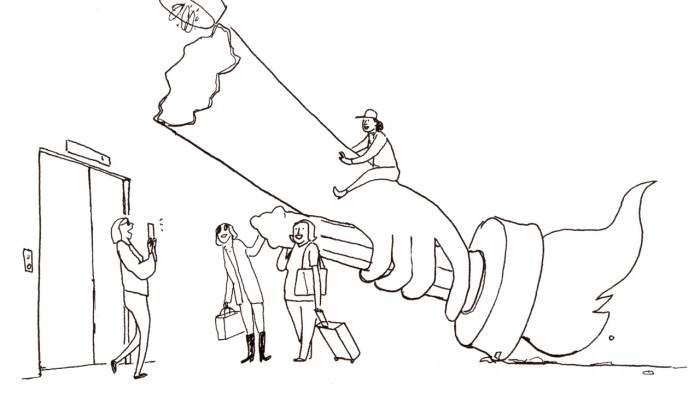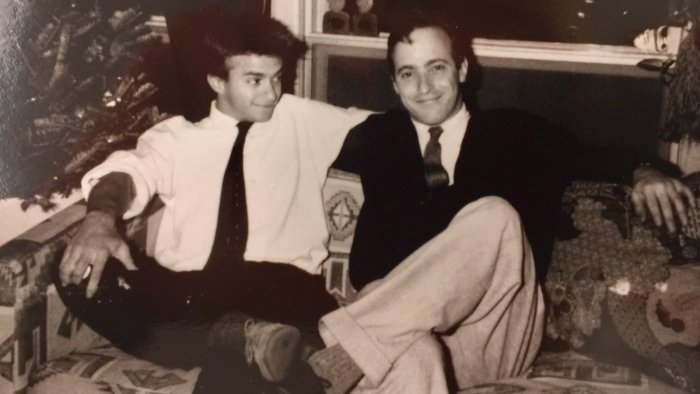I like guys by david sedaris – David Sedaris’ “I Like Guys” is a poignant and humorous essay that delves into the complexities of identity, sexuality, and self-acceptance. Through a series of personal anecdotes and observations, Sedaris explores the challenges and triumphs of coming to terms with one’s true self in a society often defined by rigid societal norms.
Sedaris’ writing is characterized by its candor, wit, and ability to connect with readers on a deeply personal level. In “I Like Guys,” he shares his own experiences with coming out, navigating societal expectations, and ultimately embracing his identity as a gay man.
Personal Experiences and Anecdotes

David Sedaris’ essay “I Like Guys” resonated deeply with me, evoking memories of my own experiences with male companionship and the complexities of human relationships. The essay’s exploration of the often unspoken bonds between men reminded me of the subtle yet profound connections I have forged with male friends throughout my life.
One particular passage that struck a chord with me was Sedaris’ observation that “guys are good listeners.” This has certainly been true in my experience. I have found that male friends are often more receptive and less judgmental than female friends, creating a safe space for me to share my thoughts and feelings without fear of ridicule.
The Importance of Male Friendships
The friendships I have formed with men have been invaluable to my personal growth. They have provided me with a different perspective on the world, helping me to understand and appreciate the male experience. Through these friendships, I have gained a deeper understanding of the challenges and triumphs faced by men in our society.
- Emotional Support:Male friends have been a source of emotional support during difficult times. They have offered a listening ear, a shoulder to cry on, and a reminder that I am not alone in my struggles.
- Shared Interests:Many of my male friends share my interests in sports, music, and outdoor activities. This has allowed us to bond over shared experiences and create lasting memories.
- Different Perspectives:The perspectives of my male friends have helped me to challenge my own assumptions and broaden my understanding of the world. They have introduced me to new ideas and ways of thinking.
Themes and Literary Analysis: I Like Guys By David Sedaris
David Sedaris’s essay “I Like Guys” explores complex themes of identity, sexuality, and self-acceptance through the lens of his own personal experiences. Sedaris’s unique literary style and narrative techniques enhance the essay’s impact, effectively conveying these themes to the reader.
Identity and Sexuality
The essay delves into the fluidity and complexities of identity, particularly in relation to sexuality. Sedaris’s frank and humorous exploration of his own sexual experiences challenges societal norms and encourages readers to question traditional notions of masculinity and heterosexuality. Through anecdotes and self-deprecating humor, he subverts expectations and offers a nuanced perspective on the spectrum of human sexuality.
Self-Acceptance
Sedaris’s essay also emphasizes the importance of self-acceptance and the challenges of navigating societal expectations. By sharing his personal experiences, he encourages readers to embrace their own unique identities, regardless of how they may differ from societal norms. Sedaris’s honest and relatable storytelling allows readers to connect with his struggles and ultimately find solace and acceptance in their own journeys.
Literary Devices and Techniques, I like guys by david sedaris
Sedaris employs various literary devices and techniques to convey these themes effectively. His use of humor and self-deprecation creates a relatable and engaging narrative, while his vivid imagery and descriptive language bring his experiences to life. Additionally, the essay’s episodic structure allows Sedaris to explore different facets of his identity and sexuality, building a comprehensive and nuanced portrayal of his experiences.
Narrative Arc
The essay’s narrative arc contributes significantly to its overall impact. Sedaris begins by establishing his initial discomfort and uncertainty surrounding his sexuality, gradually leading the reader through his journey of self-discovery and acceptance. The essay’s climax occurs when Sedaris confronts his father about his sexuality, a pivotal moment that marks a turning point in his self-acceptance.
The essay concludes with a sense of resolution and peace, as Sedaris embraces his true identity and finds acceptance within himself and his family.
Social and Cultural Context

David Sedaris’s essay “I Like Guys” was written in the early 2000s, a time when societal attitudes towards homosexuality and gender identity were undergoing significant shifts.
At the time, homosexuality was still widely stigmatized in many parts of the world, and same-sex marriage was not yet legal in the United States. However, there was also a growing movement for LGBTQ+ rights, and public opinion was slowly becoming more accepting of homosexuality.
Challenging Societal Norms
Sedaris’s essay challenged societal norms by presenting a positive and humorous portrayal of homosexuality. He writes about his own experiences as a gay man, and he does so with wit and candor. In doing so, he helps to break down stereotypes and make homosexuality seem more relatable and acceptable.
In his witty and relatable memoir, “I Like Guys,” David Sedaris explores the complexities of relationships, friendships, and the human condition. While the book primarily focuses on Sedaris’s experiences as a gay man, it also touches upon universal themes of love, loss, and the search for connection.
In a particularly humorous passage, Sedaris describes his fascination with the human body, specifically the muscles of the abdomen. If you’re curious about your own abdominal anatomy, why not take a muscles of the abdomen quiz ? It’s a fun and informative way to learn about the different muscle groups in your core and their functions.
Returning to Sedaris’s memoir, his writing style is both insightful and entertaining, making “I Like Guys” a must-read for anyone interested in exploring the complexities of human relationships.
Humor and Satire

David Sedaris employs humor and satire throughout “I Like Guys” to critique societal attitudes and stereotypes surrounding homosexuality. His witty observations and exaggerated anecdotes serve as a vehicle for social commentary, making the essay both entertaining and thought-provoking.
Use of Humor
Sedaris’s humor is often self-deprecating, allowing him to poke fun at his own experiences while simultaneously exposing the absurdity of societal expectations. For instance, he describes his teenage crush on a classmate named Brad, who was “as close as I’d come to finding a real-life version of the Marlboro Man.”
By juxtaposing his infatuation with the hyper-masculine image of a cigarette advertisement, Sedaris satirizes the narrow definitions of masculinity that society imposes.
Satirical Critique
Sedaris’s satire extends beyond his personal experiences to critique broader social norms. He mocks the assumption that homosexuality is a choice, arguing that it is as natural as heterosexuality. He also challenges the idea that gay men are inherently predatory, using his own experiences to demonstrate that they are just as diverse as any other group of people.
Humor as a Conveying Tool
Sedaris’s use of humor makes the essay accessible to a wide range of readers. By presenting his critique in a humorous and relatable way, he ensures that his message resonates with people from all walks of life. His ability to find humor in the most uncomfortable situations allows him to engage readers on an emotional level, making his essay both impactful and memorable.
Character Development

David Sedaris’s essay “I Like Guys” presents a cast of memorable characters who contribute to the essay’s humor and insights. Sedaris himself serves as the main protagonist and narrator, while his father, sister, and various acquaintances play supporting roles.
David Sedaris
Sedaris is a complex and self-deprecating narrator who shares his experiences and observations with candor and humor. His essay explores his evolving understanding of his sexuality and his relationships with others. Over the course of the narrative, Sedaris develops from a shy and awkward youth to a confident and self-assured adult.
Sedaris’s Father
Sedaris’s father is a stern and unyielding man who struggles to understand his son’s homosexuality. His relationship with Sedaris is strained, but Sedaris eventually learns to accept his father’s limitations and appreciate his love in his own way.
Sedaris’s Sister
Sedaris’s sister is a supportive and understanding sibling who provides him with love and encouragement. Her acceptance of Sedaris’s sexuality helps him to come to terms with his own identity.
Narrative Structure

Sedaris’s essay “I Like Guys” is structured in a nonlinear fashion, employing flashbacks, foreshadowing, and other narrative techniques to create a complex and engaging narrative.
The essay begins with a seemingly innocuous anecdote about the author’s experience as a camp counselor. However, this anecdote gradually reveals deeper layers of meaning, foreshadowing the essay’s central themes of homophobia and self-acceptance.
Use of Flashbacks
Sedaris frequently uses flashbacks to explore his past experiences and their impact on his present. These flashbacks provide insight into the author’s childhood and adolescence, shedding light on the formative events that shaped his views on homosexuality.
For example, one flashback recounts an incident in which Sedaris was bullied by his peers for being perceived as gay. This incident illustrates the pervasive homophobia that Sedaris faced growing up and its lasting impact on his self-esteem.
Foreshadowing
Sedaris also employs foreshadowing to create a sense of anticipation and suspense throughout the essay. Early on, he hints at the fact that he is attracted to men, but he does not explicitly come out until the end of the essay.
This foreshadowing builds tension and keeps the reader engaged, as they anticipate the author’s eventual revelation. It also serves to highlight the difficulty and trepidation that Sedaris feels about coming to terms with his sexuality.
Pacing and Sequencing
The essay’s pacing and sequencing contribute to its overall impact. Sedaris alternates between moments of humor and poignancy, creating a sense of emotional depth and complexity.
The essay begins with a lighthearted anecdote, but it gradually becomes more serious as Sedaris explores his struggles with homophobia and self-acceptance. This pacing allows the reader to connect with the author on a personal level and to understand the emotional journey he has undertaken.
Essential Questionnaire
What is the main theme of “I Like Guys”?
The main theme of “I Like Guys” is the exploration of identity, sexuality, and self-acceptance, particularly in the context of societal expectations and norms.
How does Sedaris use humor in the essay?
Sedaris uses humor to critique societal attitudes and stereotypes, often through the use of satire and self-deprecating anecdotes.
What is the significance of the personal anecdotes in the essay?
The personal anecdotes provide a relatable and intimate perspective on the challenges and triumphs of coming to terms with one’s true self.